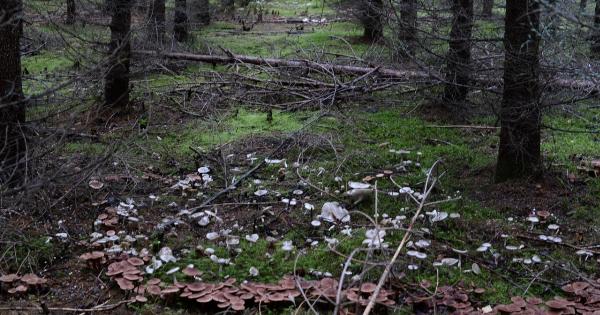Cancer is one of the leading causes of death worldwide. It is a complex disease that affects different parts of the body and can be caused by numerous factors including genetics, lifestyle, and environmental factors.
Over the years, treatments for cancer have improved but not without significant side effects. However, studies have shown that there is potential for natural remedies such as flower petals to help in the fight against cancer.
What are Flower Petals?
Flower petals are the brightly-colored, thin and delicate structures that form the outer part of the flower. They are the part of the plant that is responsible for attracting bees and other pollinators to the flower.
Flower petals come in different colors and are highly valued for their aesthetic value. However, beyond their beauty, they are rich in bioactive compounds that have been shown to have numerous health benefits, including cancer-fighting properties.
Flower Petals and Cancer-Fighting Properties
Several studies have investigated the potential of flower petals to prevent or treat cancer.
According to a review published in the journal Antioxidants, some of the bioactive compounds in flower petals can inhibit the growth of cancer cells, induce apoptosis (cell death) and prevent angiogenesis (the growth of new blood vessels that support tumor growth).
Which Flower Petals are Beneficial for Cancer?
While there are numerous flower petals that have been found to have cancer-fighting properties, some of the most studied include:.
Marigold Petals
Marigold is a common garden flower noted for its yellow or orange-colored petals. The petals of the marigold flower contain carotenoids, flavonoids, and terpenoids that have been shown to induce apoptosis in cancer cells and inhibit angiogenesis.
According to a study published in the Journal of Biomedicine and Biotechnology, the extracts from marigold petals have anticancer properties against breast, colon, prostate, and lung cancer cells.
Rose Petals
Rose petals are rich in antioxidants such as vitamin C, carotenoids, and flavonoids that have been shown to inhibit the growth of cancer cells.
According to a study published in the Journal of Traditional and Complementary Medicine, the extract of rose petals inhibits the proliferation of colon cancer cells and induces apoptosis, the death of cancer cells. Additionally, the study showed that the extract of rose petals has antioxidant properties that protect the cells from oxidative damage.
Sunflower Petals
Sunflower petals are rich in phenolic compounds such as quercetin, kaempferol, and caffeic acid that have been shown to have anticancer properties.
According to a study published in the journal Nutrition and Cancer, the petroleum ether extract of sunflower petals induced cell death in breast cancer cells.
Chrysanthemum Petals
Chrysanthemum petals have been used in traditional Chinese medicine as a remedy for various diseases such as inflammation, hypertension, and cancer.
According to a study published in the Journal of Functional Foods, the extract of chrysanthemum petals induced apoptosis in colon cancer cells and inhibited cell proliferation. Additionally, the study showed that the extract of chrysanthemum petals has antioxidant properties that reduce oxidative damage in the cells.
Hibiscus Petals
Hibiscus is a tropical flower commonly used as a tea in different parts of the world. The petals of the hibiscus flower are rich in flavonoids, anthocyanins, and polyphenols that have been shown to have antioxidant and anti-cancer properties.
According to a study published in the journal Food and Chemical Toxicology, the extract of hibiscus petals induced apoptosis in human gastric cancer cells and inhibited cell proliferation.
Conclusion
The potential of flower petals in preventing or treating cancer cannot be overemphasized. Despite the numerous benefits of natural remedies, it is important to note that they should not be used as a substitute for conventional treatment.
Natural remedies should be used in conjunction with conventional treatment. Additionally, more research is needed to explore the potential of flower petals in preventing or treating cancer.




























